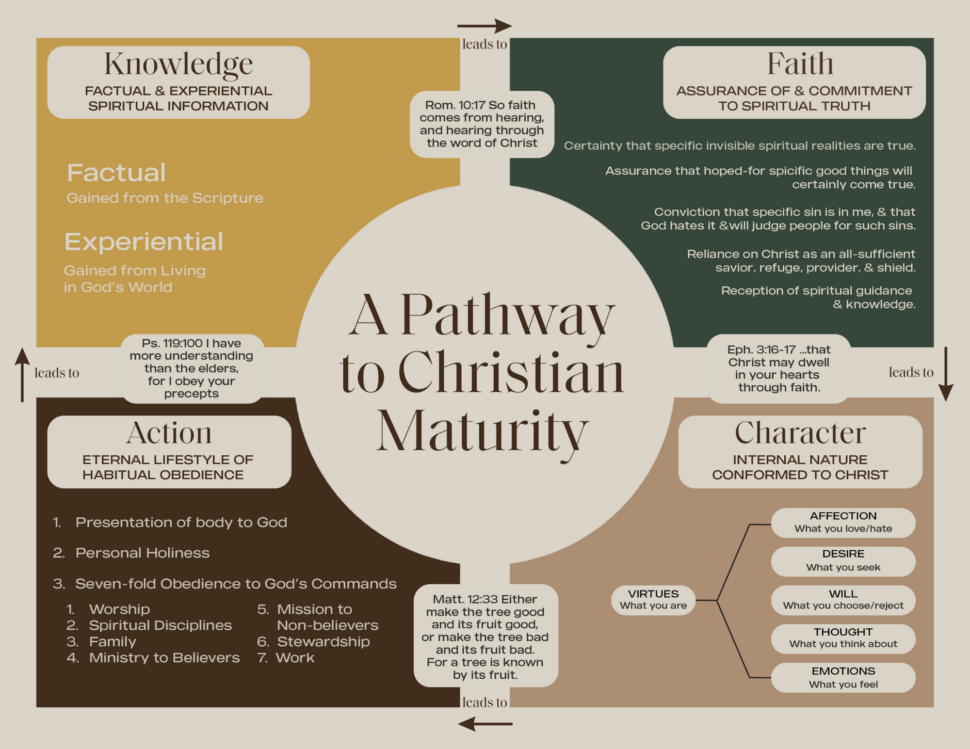
Will My Works Pass the Test?
A certain miller from a nondescript village wanted to make himself appear important. So, he boasted to the king that his beautiful daughter could spin straw into gold. The king called his bluff and locked his daughter in the tower with a room full of straw, ordering her to spin the straw into gold by morning, or else face a horrible death. As the hapless girl sat there in despair, suddenly a strange dwarf appeared, and offered to do the magical deed. He had the power to spin the straw into gold. But for him to do this, she had to agree to give him her firstborn child.
This is how the strange and somewhat eerie children’s story “Rumpelstiltskin” goes. For me, it is a striking illustration of the incredible power of faith to transform even the most menial tasks and the most ordinary days into gold for all eternity. Apart from faith in Christ, our deeds are said to be no more than “wood, hay, and straw” (1 Corinthians 3:12). When they are tested on Judgment Day for their quality, they will burn up and we will suffer loss (1 Corinthians 3:15). However, anything done by faith in Christ, for the glory of God, will survive the fire of Judgment Day and will last for all eternity. In this way, faith transforms straw and makes it gold.
The final arena of positive Christian action for us to consider is our work. This includes our careers and our daily chores. It includes labors of our bodies and of our minds. Though our earthly labors may seem insignificant, nothing could be further from the truth; God delights to use our work to advance His Kingdom.
Redeeming the Time
But by the Spirit, we can transform the straw of earthly minutes into the gold of deeds done for Christ.
Though certainly not originally intended this way, the story of Rumpelstiltskin can be seen as a parable concerning the power of human labor to turn something worthless into something of immense value. As a Christian, I see it directly connected to the concept of “redeeming the time.” In Ephesians 5:16, Paul says we must be “redeeming the time, because the days are evil” (Ephesians 5:16, KJV). As we have already noted, the word redeem used here literally means to “ransom” or “buy back.” The image is of a slave market in which, for the payment of a price, a captive can be set free. In some sense, then, every moment of the day is like a captive, needing to be rescued through the payment of a price. The price for rescuing every moment is Spirit-empowered labor. In effect, every minute comes to us as straw, worthless, fit only for burning. Apart from Spirit-empowered labor, those minutes will be wasted. But by the Spirit, we can transform the straw of earthly minutes into the gold of deeds done for Christ. They will then last for all eternity, rewarded on Judgment Day.
Do It All for the Glory of God
For this reason, a mature Christian seeks to glorify God in whatever work his hand finds to do, no matter how insignificant the task may seem. Though his moments on a given day may be reduced to making photocopies, or weeding a garden, or picking up his boss at the airport, or getting the car inspected before the deadline, yet even these things can be done to the glory of God, “Whatever you do, work at it with all your heart, as working for the Lord, not for men, since you know that you will receive an inheritance from the Lord as a reward. It is the Lord Christ you are serving” (Colossians 3:23–24).
So, we are to spin straw into gold by following the Spirit, moment by moment. By the Spirit-led labors of our hands and of our minds we are storing up treasure that will last forever. Of course, I am not here arguing against rest and relaxation, or against sleep. God humbles us by making such bodies and minds as these that easily get weary and regularly need rest. But rest and relaxation, like the honey we mentioned earlier, must be taken in appropriate doses. Too much and we are ruined.
One of the central figures in the book of Proverbs is the sluggard, who ruins his life by his unwillingness to work. It starts innocently, just by sleeping in. But soon it leads to wholesale destruction, with his property totally ruined, as we saw in the last chapter (Proverbs 24:30–34). This lazy man is so listless, he can’t rouse himself out of bed: “As a door turns on its hinges, so a sluggard turns on his bed” (Proverbs 26:14). He constantly makes imaginative excuses against doing any work: “The sluggard says, ‘There is a lion outside!’ or ‘I will be murdered in the streets!’” (Proverbs 22:13). He can barely lift his own food to his mouth: “the sluggard buries his hand in the dish; he will not even bring it back to his mouth!” (Proverbs 19:24). He has become worthless through self-indulgent laziness.
These Proverbs may seem like harsh indictments against any rest or recreation at all. Obviously, God desires that we rest (Psalm 127:2 says God grants sleep to those He loves), and that we recreate (or else why did Jesus recline at table and feast with his friends? John 12:1–2). But just like with the threat of money, we must be vigilant against the alluring siren call of a life of comfort, ease, and recreation. The recreation industry in America is growing exponentially. This includes the multi-billion-dollar movie industry, as well as computer games, sporting goods, hammocks, and recreational vehicles. If we are not careful, we can begin to look on work as an annoying interruption in a life of fun, pleasure, and ease.
We were created for work and work itself is a gift of God. Work predates the fall of Adam, as we have already noted. Certainly Genesis 1 presents the incredible labor of God in creating the heavens and the earth. God labored for six days, and crafted an immense universe filled with the works of His hands. Human beings, created in his image, were created to do work after his pattern.





